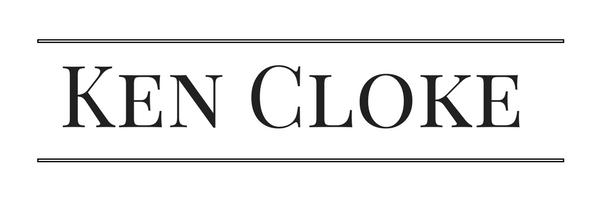The Current Focus of Ken's Work
At present, my non-mediation work is focused in the following three areas:
1. Building Conflict Resolution Capacity Locally and Globally: It is imperative that we strengthen the skills we need to resolve our conflicts both locally and globally, in order to create sustainable peaceful relationships around the world, especially in highly conflicted and under-served communities, and that we transform our adversarial cultures of conflict, so we can work together to solve our common problems. Adversarial power- and right-based approaches such as war and litigation are increasingly ineffective in doing so.
2. Developing Dialogue Skills and Democratic Responses to Political Polarization: Democracy requires a higher order of skills: in empathetic listening, non-violent communication, collaborative negotiation, group facilitation, dialogue, conflict resolution, responding to prejudice and discrimination, and designing integrated conflict resolution systems, that allow us to transform diversity into synergy, and political polarization into dialogue and creative problem solving.
3. Deepening our Individual and Relational Capacity for Awareness and Authenticity: Tolstoy wrote that "Everyone wants to change the world, but no one wants to start with themselves." Both are required. We cannot successfully build peace in the world while nursing violence and hostility within, or expect that by personally changing our attitudes, others will automatically do the same. Peace begins, as Thich Nhat Hahn wrote, with every step, every person we meet, every relationship we form. Dismantling the sources of conflict within requires higher order skills in awareness, emotional intelligence, insight, authenticity, and heartfelt communication.
It is clear that without shifting our personal skills, without altering our political landscape, and without strengthening our capacity as a species to resolve our differences with each other, our attitudes, relationships, systems and cultures will continue to reinforce ancient, adversarial patterns that keep us trapped in wars, social injustice, and personal animosities that waste and prematurely end our lives. Building any of these higher order skills will be difficult, and require a conflict revolution, created by all of us, working together.
Here are a few ways you can help personally, if you would like to do so.
1. Be an ambassador for the vision and possibilities that inspire this work. Recommend my books and those by other writers to those you think would benefit from them. If any of them inspired you, recommend them to friends, write a review for Amazon, a blog, or a local newspaper. If you know journalists or bloggers who might like to know more about these areas, spread the word. When you travel to new places, meet with local mediators, adopt a local project, and become an ambassador for conflict resolution.
2. Contribute your passion and skills. Join a group of like-minded people, or form one of your own. If you have special talents (e.g. editing, social media, event organizing, video recording, podcasting etc.), don't wait, but volunteer and find ways of contributing. There are hundreds of mediators and dispute resolution groups that would appreciate your help.
3. Support movement-building activities. Even small donations of time, effort and finances can make a huge difference to non-profit conflict resolution and peace building organizations. For those who are interested in supporting Mediators Beyond Borders and other international efforts, or would like to create local projects to encourage conflict resolution in different communities, countries, and cultures, there are countless actions you can take, some small and quick, others large and long lasting, each of which can be immensely helpful. For 30 ways you can contribute globally and locally, click here.
For example, this website was designed and developed by Tesa Silvestre, as a gift to aid in this work. You can find out more about her and the projects she supports by visiting the bio page of her philanthropy website at http://www.ayasrivers.com.
There are many ways you can contribute. What is most important is to begin.
